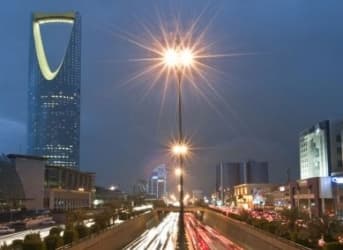On Monday, Saudi Arabia released a blueprint for the future, a plan for the Kingdom that could alter the course of its history. The “Vision for the Kingdom of Saudi Arabia” could radically transform Saudi Aramco, the Saudi economy, and the country’s social structure.
The plan has been pioneered by the 30-year-old Deputy Crown Prince Mohammed bin Salman, the second in line to the King, who has emerged as one of the most powerful figures in the Saudi government. Just a week ago his influence was on display; while it is difficult to know exactly what went on behind the scenes, all signs point to the Deputy Crown Prince overruling the long-standing and respected oil minister Ali al-Naimi to kill off the OPEC deal in Doha.
The prince has provided some clues into the roadmap, telling Bloomberg in a wide-ranging interview several weeks ago that the government plans on spinning off parts of the massive state-owned Saudi Aramco in an IPO. He also said that Saudi Arabia wants to create the world’s largest sovereign wealth fund, which would be built up with $2 trillion in assets, to be used to help diversify the Saudi economy away from oil dependence. “So within 20 years, we will be an economy or state that doesn’t depend mainly on oil,” the prince told Bloomberg. Related: Horizontal Land Rig Count Summary 22nd April 2016
For a long time, however, oil will remain a mainstay. Saudi Aramco produces about 10 million barrels per day (mb/d), the largest volume in the world and more than double that of any other company. It is the only company with sizable assets sitting on the sidelines, acting as spare capacity. Aramco has the capacity to produce about 12 mb/d, and some say it has even more than that. Aramco also is the fourth largest oil refiner in the world. Despite its size and importance, the company is not sitting idle. Even though most of its oil production comes from huge aging oilfields, Aramco continues to drill to avoid seeing its position erode over time. By the end of May, for example, Saudi Aramco will complete the expansion of its Shaybah oilfield, adding 250,000 barrels per day to its capacity.
The prince and his advisors revealed to Bloomberg that the country was in a much worse fiscal situation a year ago than many had believed. In early 2015, everyone knew that Saudi Arabia was burning through its cash reserves to keep the economy going and maintain the stability of its currency. The IMF predicted that at low oil prices, Saudi Arabia could maintain that rate of cash burn for another five years before going broke. But the Prince’s financial advisor recently revealed that before the latest austerity campaign, Saudi Arabia probably had about only two years left, and was on track to go “completely broke” by early 2017. Wasteful spending and a collapse in oil revenues put the government in a fiscal calamity. Related: Choppy Oil Markets Await Oil Majors’ Earnings
Since then, Saudi Arabia has introduced some taxes for the first time, cut spending by about a quarter, trimmed energy subsidies, and raised money through the bond markets. The fiscal breakeven point has successfully declined from $94.80 per barrel to just $66.70 per barrel. Even still, it is burning through its cash reserves. The latest IMF assessment finds that oil-exporters from the Middle East lost $390 billion in 2015 alone from low oil prices. The Fund calls on these governments, including Saudi Arabia, to reduce the presence of the state in the economy and to focus on private sector job growth. About two-thirds of Saudi workers are employed by the government.
That is what the prince is trying to do with the new 2030 roadmap, a plan to transition the economy to something beyond oil. Diversification has always made sense, but the collapse of oil prices has made reform much more urgent. Related: China Stockpiling Oil At Highest Rate In Over A Decade
Elements of the plan will commence within 45 days. The prince wants to focus on job creation, as well as raise $100 billion in annual non-oil revenue by 2020. Lowering energy subsidies could save $30 billion per year by the end of the decade. Taking about 5 percent of Saudi Aramco public – mostly downstream assets – will provide a lot of cash that can be used for non-oil investments. Prince Mohammed also hopes it will increase transparency.
The prince wants to attract more international investment, and part of that could include loosening the country’s strict social and moral rules, which could result in gradually granting more rights to women. Many international companies stay away because of Saudi’s oppressive social structure and poor human rights record. Prince Mohammed faces a tough challenge – modernizing the economy and society will require him to confront religious conservatives, a faction that the government has allied with for many decades.
For now, he appears willing to take on that challenge, as building an economy that is no longer exclusively dependent on oil is his top priority. "I think by 2020, if oil stops we can survive," Prince Mohammed said. "We need it, we need it, but I think in 2020 we can live without oil."
By Nick Cunningham of Oilprice.com
More Top Reads From Oilprice.com:
- The Real Reason Saudi Arabia Killed Doha
- What Iron Ore Futures Tell Us About Oil Prices
- Expert Commentary: Oil Market Analysis and The Week Ahead



















-Warren Buffet